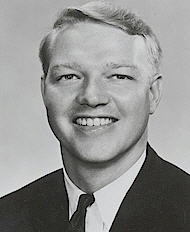 I have an expression that I have ruthlessly stolen from Star Trek IV: The Voyage Home, and it is, “A double dumb-ass on you!” Today I say that to Apple, for walking into a minefield with iTunes, and controlling what applications they allow on the iPhone and iPod Touch. It seems that someone wrote an game called Baby Shaker, in which the idea is to cause the baby on the screen brain damage. The game is sickening and tasteless, which I generally like, but in this case, it even turned me off.
I have an expression that I have ruthlessly stolen from Star Trek IV: The Voyage Home, and it is, “A double dumb-ass on you!” Today I say that to Apple, for walking into a minefield with iTunes, and controlling what applications they allow on the iPhone and iPod Touch. It seems that someone wrote an game called Baby Shaker, in which the idea is to cause the baby on the screen brain damage. The game is sickening and tasteless, which I generally like, but in this case, it even turned me off.
So why is Apple in trouble? They approved publication of the game and then after parental outrage they withdrew the approval. Oops! Somehow to Apple this debacle was not predictable. Here is a lesson that many in the print media as well as the networking business already know. If you attempt to control content at all, you take some responsibility for that content. In no way can the iTunes store be viewed as an open market, in the same way, say as eBay. And even eBay caves into pressure to remove some items from auction.
This is only the latest in a series of minor goofs they’ve made, the last one being the other side of this coin- they had a backlog of applications that people wanted approved for release on iTunes. Instead of simply hiring more people they seem to have relaxed their standards. Good news for developers, but bad news for consumers who are not careful, and bad news for Apple’s image.
The purpose of Apple’s review is nominally to ensure that an application does not interfere with the proper functioning of the consumer device. When you have millions of these things out there, the last thing you want is to increase your support costs (such as people clogging Genius Bars) due to a poorly written application. Of course, that’s not the only reason Apple has control. They want a cut of the money for for-profit apps. And indeed they would have profited from the distribution of this app, which sold for $0.99. But if you want a piece of the action you have to work for it, and in this case Apple did not. Even though the iPhone and iTunes largely sustained Apple’s top line growth, the company cut corners on the editorial review that they seemingly hold so dear.
 Attorney General Holder this week
Attorney General Holder this week  . It is also possible that the man whose policies were a huge source of controversy misses the limelight. And it is certainly true that Cheney believes that his policies were the correct ones, and that the dismantling of those policies are dangerous: he’s not lying.
. It is also possible that the man whose policies were a huge source of controversy misses the limelight. And it is certainly true that Cheney believes that his policies were the correct ones, and that the dismantling of those policies are dangerous: he’s not lying. When I grew up in New Jersey in the ’70s and into the ’80s, one of the constants in my life was my father’s love of the Philadelphia Phillies. Throughout the Spring and Summer, we would turn the rotor Antenna toward Philly and bring in snowy Channel 17, WPHL, to watch the game and listen to Harry Kalas and Richie Ashburn. When we were on the road we would listen to them as well, as one would provide coverage on the TV and the other on the Radio.
When I grew up in New Jersey in the ’70s and into the ’80s, one of the constants in my life was my father’s love of the Philadelphia Phillies. Throughout the Spring and Summer, we would turn the rotor Antenna toward Philly and bring in snowy Channel 17, WPHL, to watch the game and listen to Harry Kalas and Richie Ashburn. When we were on the road we would listen to them as well, as one would provide coverage on the TV and the other on the Radio. Some time ago
Some time ago